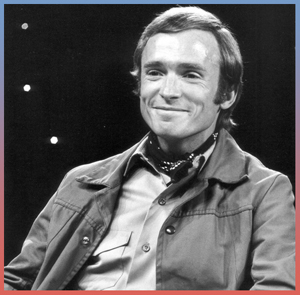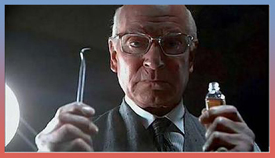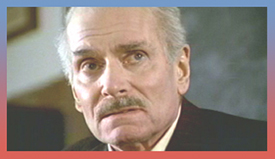A few days ago, I had just finished saying "Adios!" to my houseguests, who came to visit for a night in New York. During their time here, we had a wonderful and long conversation that embraced so many areas of life. As we three are all musicians, of course, the conversation, at some point, turned to musical issues. But more than that, we spoke of the philosophical notions related to having and maintaining a creative life in the arts.
I spoke of my years at U.C.L.A.('65-'69) and how very behind I felt, while trying to attain my B.A. in Music(Composition & Theory). I felt that I had been "allowed" to graduate even though, looking back, my knowledge and skills were woefully inadequate at the time. I went on to explain that during my first 10 years in New York, I used to have dreams, nightmares about college exams, which usually contained some vision of me having to face an exam that I was not prepared for, or that I had forgotten some very necessary book that I would need. Of course, in the dream, panic sets in, and I am frantically running back to recover what I would need. Or worse yet, I was just afraid to fail.
As the years went on, the insecurity lingered, though it never completely incapacitated my humble abilities, nor my intense desire to be better, and to try to do something of weight and importance in my musical life. And so, of course, I continued to have, what I would describe as classic "insecurity dreams." The only difference was that they were not focused on 'exams' per se, but on fictional musical situations. And, often times, in these dreams, some of my closest friends and VERY respected peers would appear. In truth, they were to be the 'judges' of the depth of my talent, or lacking thereof. Because their approval meant so much to me in my early years in New York, Michael Brecker, Randy Brecker, and Don Grolnick have all appeared in these dreams - separately, together, and in varying combinations. The typical dream would be that I would have an important concert, or even my own recording, and, on my way there, I would realize that I had forgotten something crucial to the endeavor, something like my guitar, or the music. Again, the tremendous sense of panic, and then running back to retrieve what I needed or had left behind. These kinds of dreams even continue to this day, but to a much lesser degree, depending upon my life circumstances at that moment. During the many years that we all played together, the three "wisemen" - the aforementioned players - really never said much of a complimentary nature to anyone, and so it was easy for self-doubt to creep in. What I learned was that their silence was really more about their own feelings of doubt and self-torture, and really had nothing to do with me. In the end, looking for words of approval from them was a waste of time and energy. As the years went by, every so often, out of the blue, Mike Brecker would phone me just to say that he had heard a track of mine on the radio while driving somewhere, and, that it sounded fantastic, and that I was "playing my ass off." What could be more gratifying to hear than that? For me? Not much! The typical dream would be that I would have an important concert, or even my own recording, and, on my way there, I would realize that I had forgotten something crucial to the endeavor, something like my guitar, or the music. Again, the tremendous sense of panic, and then running back to retrieve what I needed or had left behind. These kinds of dreams even continue to this day, but to a much lesser degree, depending upon my life circumstances at that moment. During the many years that we all played together, the three "wisemen" - the aforementioned players - really never said much of a complimentary nature to anyone, and so it was easy for self-doubt to creep in. What I learned was that their silence was really more about their own feelings of doubt and self-torture, and really had nothing to do with me. In the end, looking for words of approval from them was a waste of time and energy. As the years went by, every so often, out of the blue, Mike Brecker would phone me just to say that he had heard a track of mine on the radio while driving somewhere, and, that it sounded fantastic, and that I was "playing my ass off." What could be more gratifying to hear than that? For me? Not much!
I am reminded of the wonderful Miles Davis DVD titled: "MILES ELECTRIC: A DIFFERENT KIND OF BLUE" which offers the complete "Isle of Wight" performance, and a series of incredibly revealing interviews with many of the most important players who passed through his bands during the years of "the great quintet" and well beyond. Each player, in his own way, expressed the feelings of self-doubt that they experienced while working with Miles, who never seemed to say much, and when he did, it was usually critical. However, there's a moment in the interview with the brilliant and innovative percussionist, Airto Moreira where he is talking about how he had no idea what they were doing, or if he was even playing the right things for the music. He wasn't even certain if he was "in the band." So, one night he asked Miles these questions hoping to have some sense of clarity. Airto: "Am I in the band?" And Miles said something like this to him: "Well, are you here tonight?" Airto nodded. Miles then asked, "Are you gonna be with us tomorrow night?" Airto nodded again. Finally, Miles then concluded: "So, that's all you need to know!" And that was that. In other words, Airto had been worried about nothing. He had the gig!!! The sense of fear and terror that we invent, deep inside ourselves, is often far worse than what the reality actually is!
In the end, we are all our own toughest critics. And, as it should be, nothing is really ever good enough. The journey to true artistic excellence never stops - it is just an ongoing process that seems to have a final destination, but, in truth, one can never arrive there. It remains as an apparition off in the distance, but always seemingly out of reach. This vision serves to torture us all. Some of us are better at dealing with it than others. I have often felt that this deep-seeded existential pain, ennui is, in part, greatly responsible for the dependence, for some, on drugs and alcohol, or other addictive behaviors. Such things provide the illusion of numbing the pain of one's own fears about themselves. In the end, each of us knows our own inner truth when faced with the mirror. There is no escape, and we know it. If you've ever gone up to a great, great player and tried to compliment them after a set of music, or a full evening of music, it is likely that that player might have graciously accepted the compliment, but then launched into a discourse citing everything that was wrong with the evening for him. I have never known a great player to come off the stand and say: "Man, that was the greatest shit anyone ever played!" Never!!! There is no whooping and hollering - often times, there is only silence. At best, a quiet nod of acknowledgment, but never more than that. For each player knows exactly what transpired while playing!
And now, back to the conversation with my houseguests. After sharing such stories of classic cases of insecurity, I chose that moment to again recount what is perhaps my favorite anecdote dealing with this area of the artistic life. with this area of the artistic life.
I am taken back to the early '70s, just after having moved to New York, living in my dark and dank first apartment, in a basement. I was sitting, up late one lost night, and I turned on the TV to watch one of my great heroes, Sir Laurence Olivier, the highly decorated British actor and Oscar® winner, doing a one-on-one interview with then talk show host, Dick Cavett. In those days, way before cable TV and the seemingly endless source of 'interviews' and inane talk, an interview on a show like Cavett's actually had some time to give both people a chance to explore something of greater depth than what we now see and hear.
So please allow me to share with you, as best as my memory will allow me to recall, how one brief exchange in their very inspiring conversation transpired:
DC: Sir Laurence, you are considered by all your peers to be "The World's Greatest Actor"
- but, I was wondering. Do YOU ever get stage fright?
LO: Of course, I'm terrified all the time!
DC: That's remarkable! But, what is it that terrifies you so much?
LO: I am terrified that I will be "found out".....
DC: "Found out".....found out about what?
LO: I'm terrified that everyone will know that I'm a complete fraud!
When I heard him say this, it was the most liberating thing for ME. Though I am a musician, everything related to the arts, meaning the pursuit of excellence, is the same. We all fear that someone, perhaps even everyone, will find out what we DON'T know. Instead, we should all be focusing on what we DO know. And not allowing what we don't know to drag us down into untold states of depression, sadness and hopelessness.
Hearing Sir Laurence say this enabled me to begin the long process of embracing what I don't know, and to not be so afraid of its possible significance. But still, I must always work hard at those areas, trying to improve at them. However, it is far more important to embrace what I DO know, and to be confident and proud of that. And above all, I must NOT ALLOW my fears to disable me from doing what I do best. I often tell this story to students when I have to go out and do clinics or seminars. I sincerely hope that you will be able to relate to this story and to understand it. But still, I must always work hard at those areas, trying to improve at them. However, it is far more important to embrace what I DO know, and to be confident and proud of that. And above all, I must NOT ALLOW my fears to disable me from doing what I do best. I often tell this story to students when I have to go out and do clinics or seminars. I sincerely hope that you will be able to relate to this story and to understand it.
For those of you who might be reading this now, in 2009, and who know little or nothing about the body of work of Laurence Olivier, I would suggest this. On a weekend, when there is not a heavy workload or family responsibilities, rent two DVDs. [1] "MARATHON MAN"('76) w/ Olivier and Dustin Hoffman; and [2] "THE BOYS FROM BRAZIL"('78) w/ Olivier and Gregory Peck. In the first, Sir Laurence plays the evil Nazi dentist, Dr. Christian Szell, guilty of horrifying war crimes. And in the second, he plays a dedicated Jewish Nazi hunter, Ezra Lieberman, who is in pursuit to stop a diabolical plot. There could not be two characterizations more broadly polarized. Watching this man work is simply mesmerizing - again, the craft, the excellence, the deep, deep commitment to the work. You do not have to be an actor to appreciate this.
In the end, we all set our sights very high. We adopt our idols early on, and the standards that they set for us are, by design, impossible to ever reach. Those idols could be on our own instrument, in the genre of music we favor, or even in one of the other great forms of art. For some of us, the struggle to 'get there' becomes too much, and we doom ourselves to fail. Others will strive, still never getting there, and will find individual forms of self-torture, born of self-doubt. But some will end-up placing their idols in a special place, very much apart, and will embark on setting their own high standards - not by design, but by simple hard work, and the never-ending pursuit of excellence. There is no excuse to set your sights any lower! We are all judged by only the highest standards.
In the arts, the goal for any artist is always the same, to do one's work in the absolute best possible manner. And then, to let it go, and to just continue to improve. There is only one direction, and that is forward! This because there is only the destination, one that we will never, ever reach! It is, after all, the pursuit of the unattainable that we seek. Happy New Year to everyone, let us welcome 2009 with open arms and great hope!!!
Steve Khan
New York, NY
December 27th, 2008
[Photos: Dick Cavett
Laurence Olivier as Dr. Christian Szell from "MARATHON MAN"
Laurence Olivier as Ezra Lieberman from "THE BOYS FROM BRAZIL"]
|



 HOME
HOME